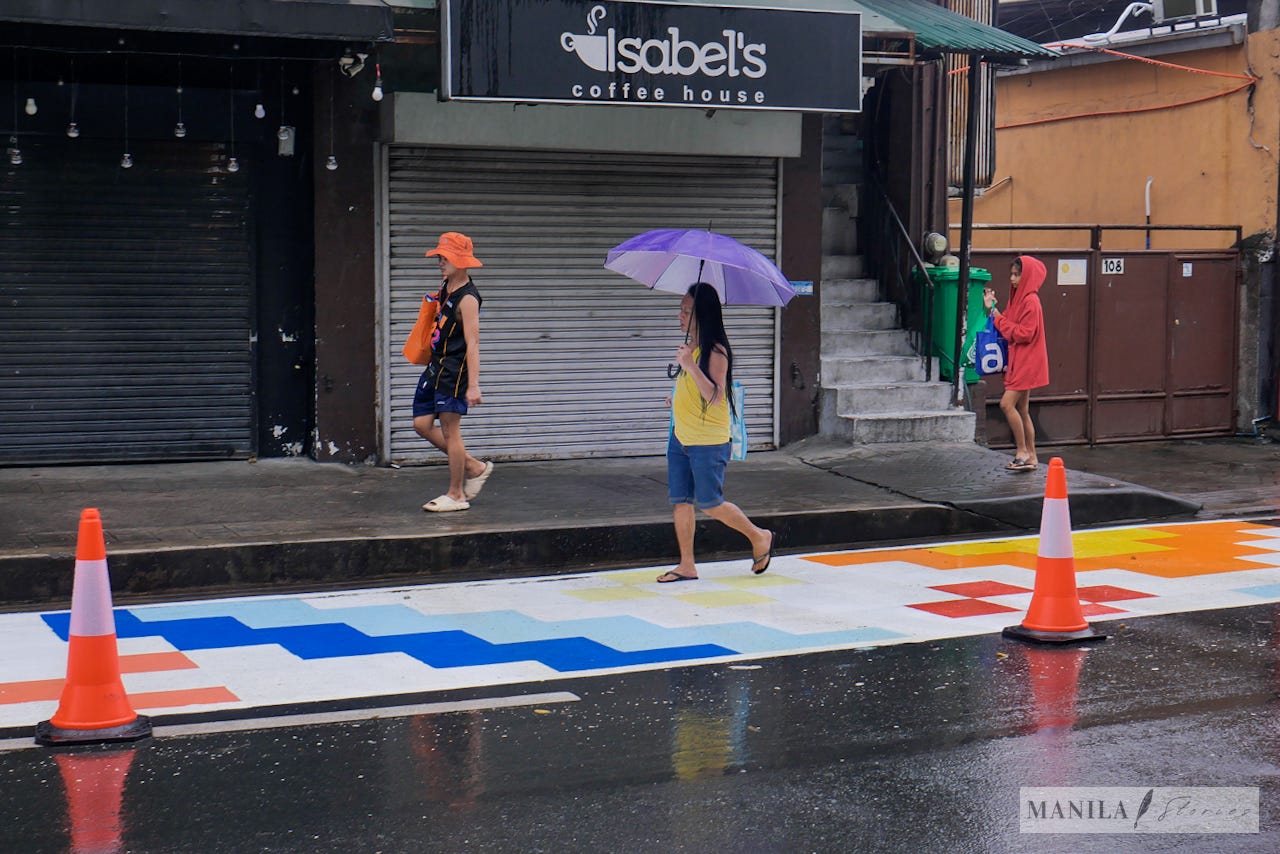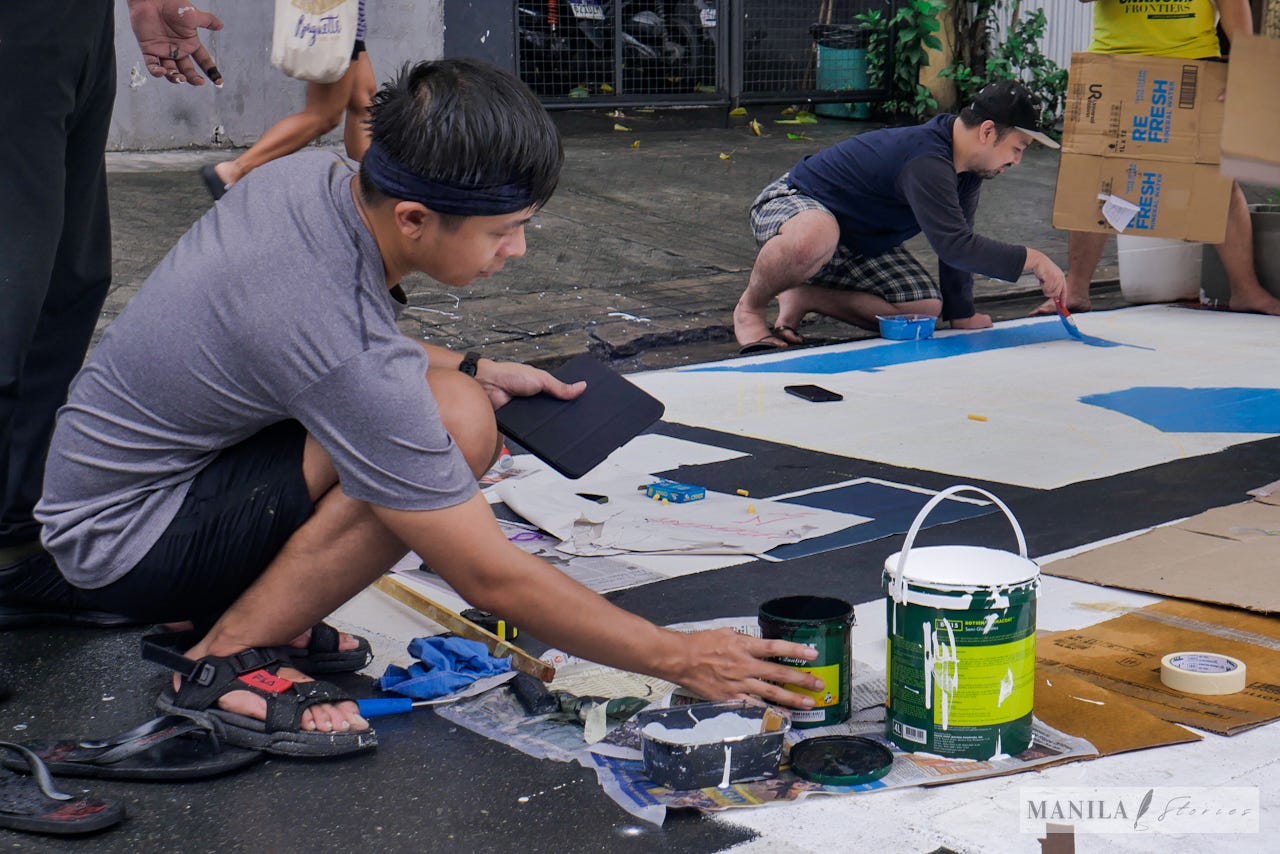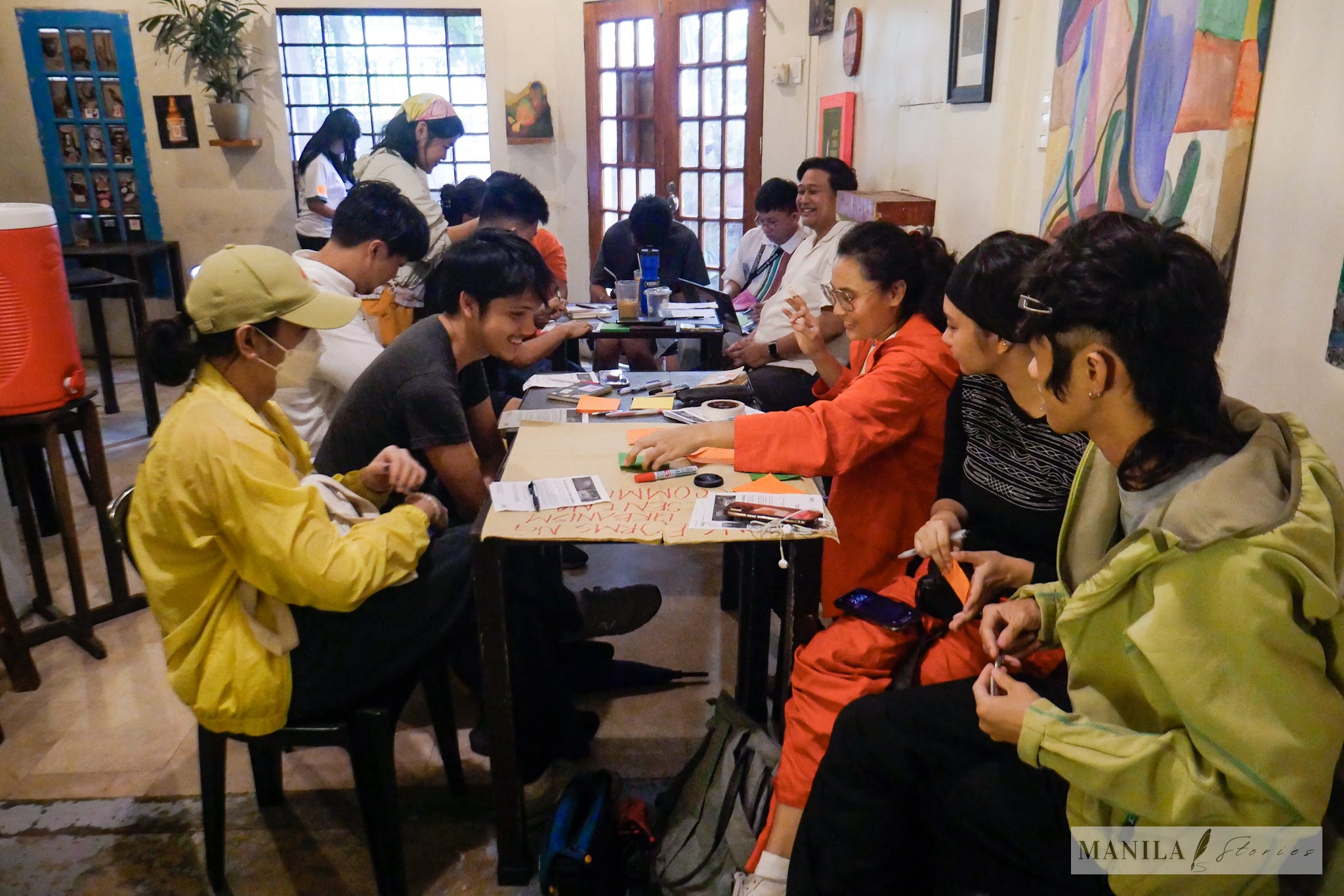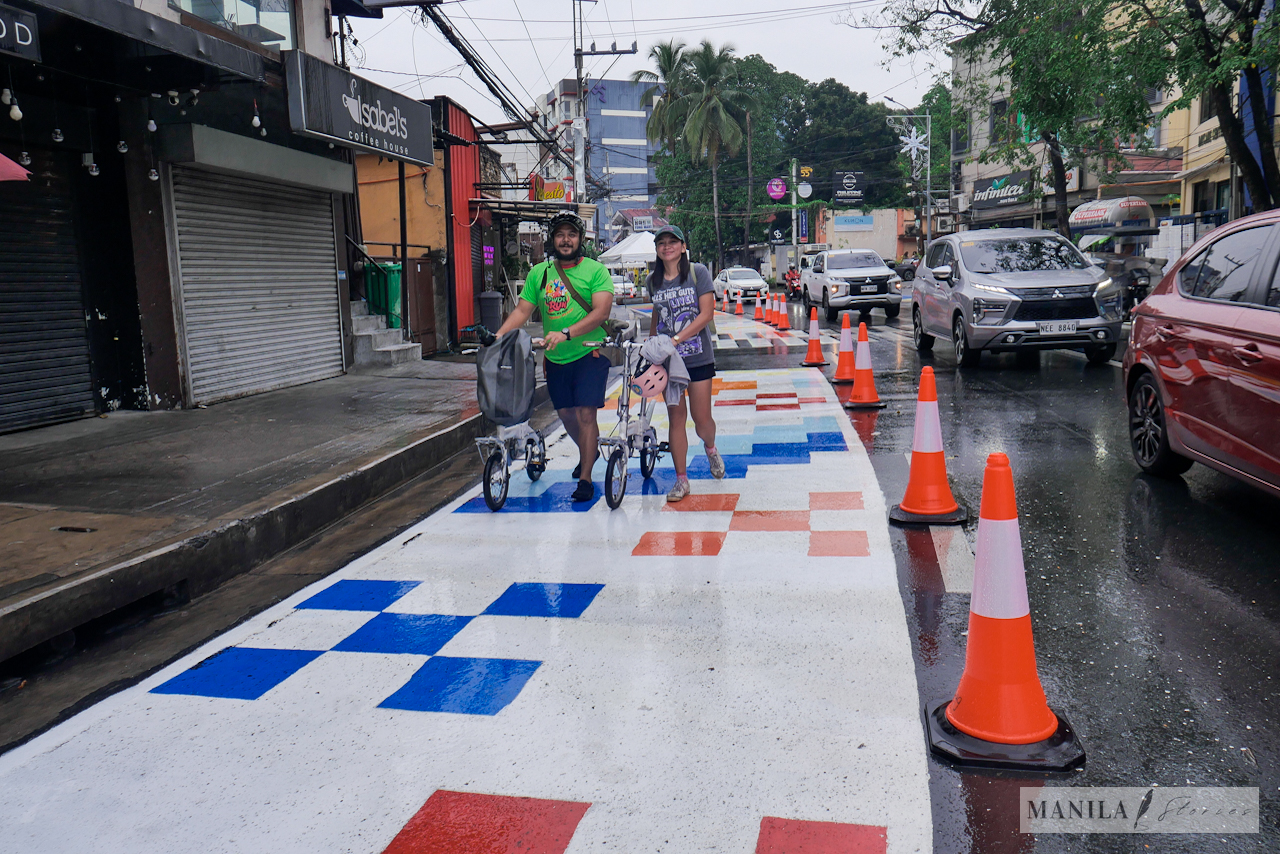Maginhawa Street in Quezon City is now undergoing an inspiring transformation. The change is due to the “Spark Project,” a community-driven initiative. This effort is led by residents and artists. This project seeks to revitalize the street. It aims to turn an ordinary bicycle lane into a vibrant canvas. The project emphasizes that the street belongs to the people, not just as a thoroughfare for vehicles.

The Spark Project embodies the principles of tactical urbanism. It uses creative and temporary interventions to enhance public spaces. It also advocates for improved urban planning. With the collaboration of individuals from various backgrounds, colorful murals are being painted to reclaim the street visually and culturally. These artworks reflect the lively spirit of Maginhawa. They showcase people enjoying the space, such as cyclists, pedestrians, families, and friends. Deliberately, they exclude depictions of vehicles to highlight a people-first approach.

Key partners in the project focus on beautifying the area. They also promote community connectedness. The Maginhawa Food Community views the initiative as a powerful catalyst for neighborhood enhancement and community engagement. The project collaborates with organizations like the International Council for Local Environmental Initiatives (ICLEI) – Local Governments for Sustainability. It aims to foster sustainability.

The Spark Project is more than just an aesthetic endeavor. It has sparked essential discussions about urban planning and pedestrian safety. There is a need to prioritize community well-being over automobile traffic. It compellingly reminds us that urban environments can evolve through collective creativity. Collaboration can transform Maginhawa Street into a thriving, people-centric space.




